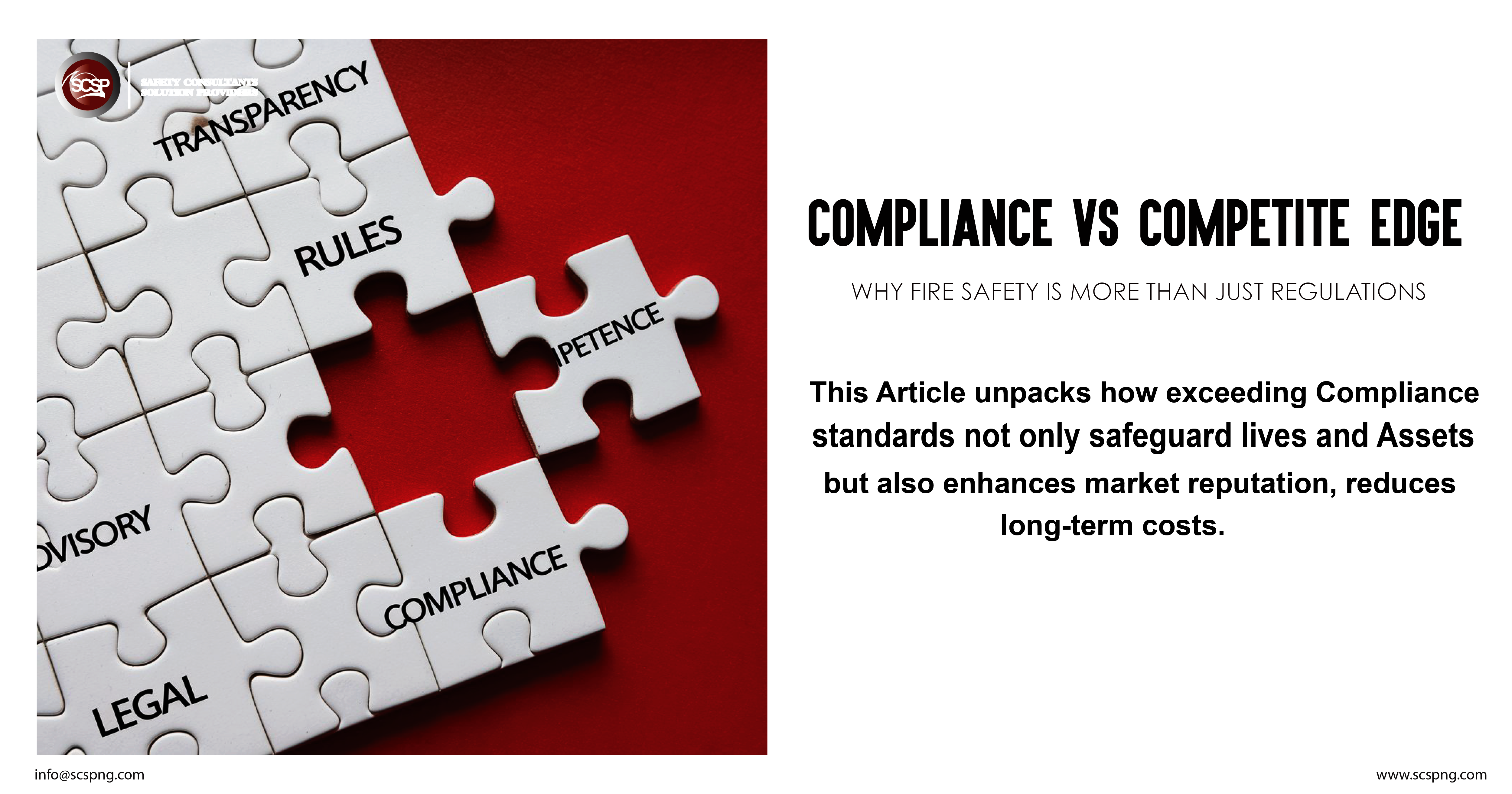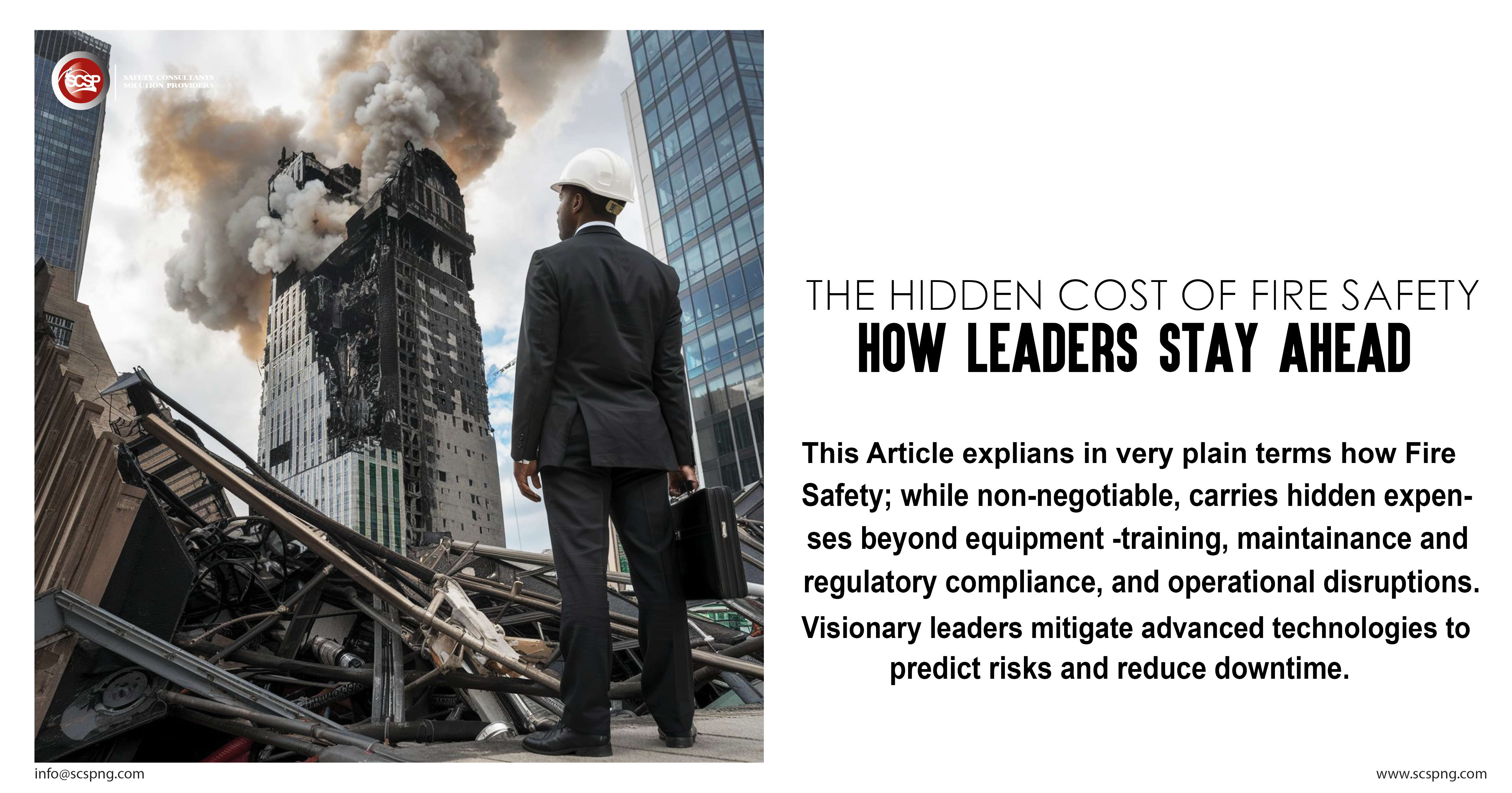In today’s dynamic and highly competitive business environment, fire safety is often viewed as a fundamental obligation—a regulatory requirement to be met to avoid penalties or legal consequences. However, progressive organisations are recognising that fire safety is far more than just compliance. By proactively investing in advanced fire prevention systems, employee education, and cutting-edge technologies, businesses can transform fire safety protocols into a powerful strategic asset. Moving beyond the minimum regulatory requirements not only mitigates risks but also enhances operational efficiency, builds stakeholder trust, and positions companies as leaders in their industries. In an era where consumers and partners increasingly value ethical and responsible practices, robust fire safety measures can distinguish a brand, turning regulatory compliance into a driver of sustainable growth.
Fire Safety as a Pillar of Operational Resilience
Operational resilience is integral to achieving and maintaining a competitive advantage, and fire safety plays a central role in ensuring it. While regulatory compliance guarantees that minimum safety standards are met, going beyond those standards significantly reduces the likelihood of fire-related disruptions. The integration of smart sensors, AI-powered fire detection systems, and automated suppression solutions can detect and address potential hazards before they escalate into major crises, protecting assets and minimizing costly downtime. Companies that prioritize these innovations not only safeguard their financial performance but also demonstrate a commitment to employee safety and wellbeing, which enhances workplace morale and retention. This proactive approach sends a clear message to investors and clients: the business is forward-thinking, well-prepared, and able to manage risks that competitors may overlook, reinforcing its market position.
Leveraging Fire Safety for Brand Reputation and Trust
In an increasingly reputation-driven market, corporate responsibility is more important than ever, and fire safety offers a tangible way for organizations to demonstrate their commitment to these values. Businesses that voluntarily adopt superior safety standards—such as obtaining third-party certifications like ISO 45001 or collaborating with fire safety non-profits—cultivate credibility and trust with stakeholders. In industries like hospitality, retail, and manufacturing, where public safety is paramount, these initiatives resonate deeply with customers. For example, a hotel chain that highlights its state-of-the-art fire suppression systems or a factory that openly shares safety audits can attract discerning clients and secure premium pricing. Additionally, when crises do arise, businesses with a proven track record of robust safety protocols recover more quickly, as stakeholders view them as reliable, accountable, and trustworthy.
Aligning Fire Safety with ESG Objectives and Long-Term Growth
A comprehensive approach to fire safety can also drive innovation and support broader Environmental, Social, and Governance (ESG) initiatives. Workplaces that prioritize safety create an environment where employees feel valued and empowered, leading to increased engagement and the generation of new ideas for continuous improvement. Furthermore, integrating fire safety with sustainability efforts—such as adopting eco-friendly fire suppression agents or reducing energy consumption in fire prevention systems—can resonate with environmentally conscious consumers and investors. Over time, these initiatives enhance brand equity, foster customer loyalty, and strengthen the organization’s reputation. In a business landscape where reputation is a valuable asset, companies that treat fire safety as a strategic priority not only mitigate risk but also spark competitive advantages that ensure long-term growth.
Conclusion
Fire safety is no longer just about compliance; it’s a key component of an organization’s broader strategy for resilience, innovation, and reputation management. By proactively investing in safety measures that exceed regulatory expectations, businesses can protect their assets, enhance employee welfare, build trust with customers, and align with evolving ESG goals. In doing so, they unlock significant competitive advantages—transforming fire safety from a legal obligation into a catalyst for sustainable success.
Learn more https://scspng.com/business-safeguarding-through-life-fire-advisory/









